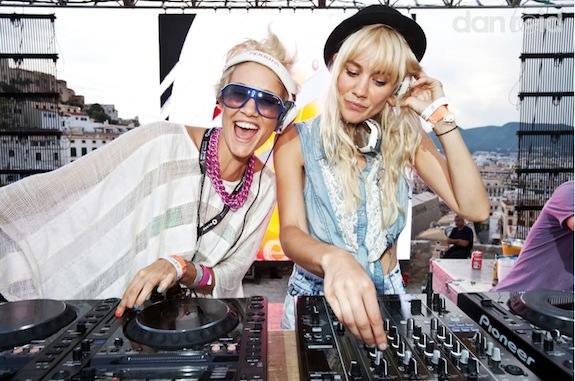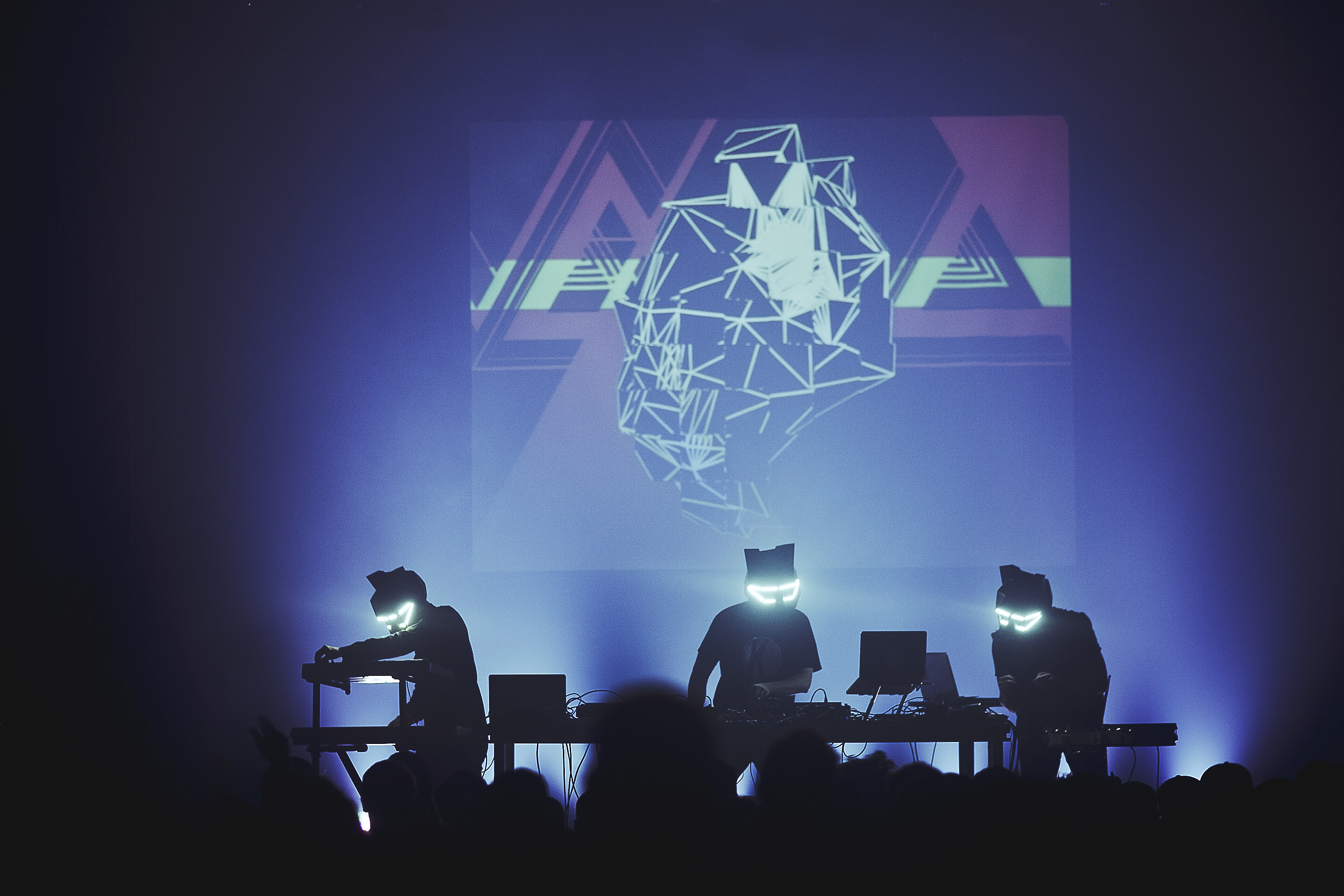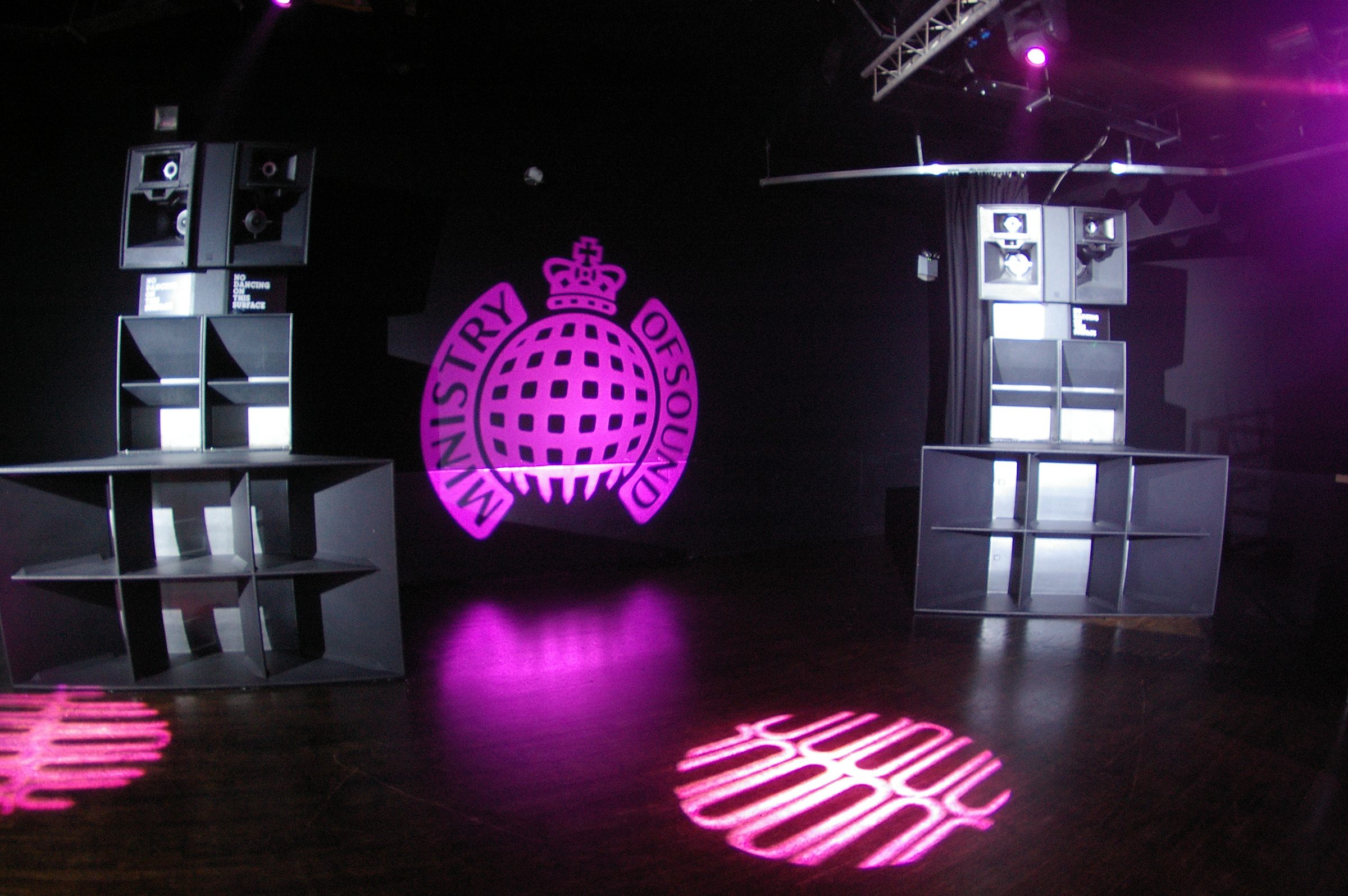It is always awkward when you love a DJ’s music and say something along the lines of “Oh, I love Seven Lions! I can’t wait to see them live” only to find out that ‘them’ is actually a ‘him’. You know what else is awkward? Automatically assuming that a famous DJ/Producer is a ‘him’ rather than a ‘her’. Face it, when you first heard about the continually rising stars Nervo, were you surprised to find out that they were girls? I’ll admit that I was.
This is what happens in a male-dominated-DJ-world; we are conditioned to assume that men are the ones responsible for creating and playing those filthy beats while scantily clad women lean against the outside of the DJ booth drooling in awe. However, the EDM world is changing, and women are beginning to push men aside to earn their way to play behind the decks, as proven by the success of artists such as Nervo and techno queen Nicole Moudaber.
Regardless of these successes, female DJ/producers are still the minority in the game. According to DJ Mag’s top 100 DJs, generated through fan-votes, there were only 3 female-led acts on the 2013 list, none of which were featured in the top 10. This goes to show that even 5 years after EDM has really boomed in the United States, and 26 years after Anita Sarko was deemed “the Queen of the Discotheque Deejays” by the New York Times, the industry remains extremely male-dominated.
The major clubs and even major festivals primarily showcase male headliners; Electric Zoo, for example, only booking about a dozen female acts over its 5-year span. However, some claim that the problem isn’t that female artists aren’t given the spotlight, but rather that they merely do not exist. According to Shawn Schwartz, who attempted to incorporate a night dedicated to female talent at his record store Halcyon in Brooklyn, there were just not enough new women to book.
“I don’t see that there’s any kind of institutional blockade from the industry side. If you are booking DJ’s, it’s not like there are equal numbers of men and women available, and just the guys get booked.”
This raises the question of, if this is true, why aren’t there more women producing and DJing electronic music? Nicole Moudaber, who accredits her boost of fame to Carl Cox after he recognized her as the most underrated DJ of 2009, proposes an interesting idea regarding gender stereotypes in relation to DJing: rather than shoving dolls and tea sets into the hands of little girls, allow them to play with and embrace technology.
“I’d like to see more girls being conditioned from their early youth by their parents and stop putting dolls in their hands. If they want to play with machines, let them play with the machines, because I never played with a doll.”
Perhaps the lack of female DJ/producers could be blamed on the gender stereotypes so imbedded into our culture. Even with the few famous women in the industry, there is not one woman that has appeared on Forbes magazine’s list of the highest-paid DJs; no woman is on that top, money-making level. When interviewed, both male and female DJs, promoters, and label executives gave their own ideas as to why the highest paid DJs remains in the male realm. Their ideas attribue “an industry predominately run by men, a lack of female role models and mentors of either gender, and a grueling lifestyle that is disruptive to having a family. And, many said, even though readily available software has made making music easier to learn, women still aren’t as prone to knob twiddling as their male counterparts”.
These last two speculations as to why there are less women DJs clearly indicate a trend of gender stereotyping and conditioning, as suggested by Moudaber. If little girls are given different toys to play with as a child, as Moudaber urges, perhaps they will become more “prone to knob twiddling as their male counterparts” and therefore more encouraged to experiment with DJing.
Saying that there are less female DJs due to the “grueling lifestyle that is disruptive to having a family” however, suggests that a woman’s primal role in life is to marry a man and pop out babies. If this can be said about a woman, it can also be said about a man who longs to be a husband and a father, and is not necessarily a reason as to why there are less women in the DJ world. Although Cassy Britton, a DJ and producer from Vienna, does admit that her lifestyle is most likely the cause of her marriage’s demise.
Although there are less famous female DJs than male, “there are more female DJs entering the field now compared with the 90s”, though the competition is obviously strong. However with commercial EDM gaining more and more popularity and therefore competition, it is interesting to think about if a talented, yet unattractive female DJ would ever make it. The Nervo sisters, for example, are thin, blonde ladies, sponsored by Cover Girl, and have a modeling background. This is not to discredit their talent, but even according to The New York Times, the EDM world “has become increasingly image-based, seemingly full of square-jawed men from Sweden, [and] the Nervo sisters are well poised to be stars”.
Although Nervo rose to fame by being good at what they do, their image surely did not hurt them along the way. In order to be taken seriously as DJs rather than sex images, the sisters make conscious attempts to not overemphasize their image by playing up their sex appeal, which can be detrimental to a female DJ’s career.
“We make sure we’re not too scantily dressed. We do make sure that we don’t tart it up too much”.
Therefore female DJs are forced to be extremely careful with their image within the industry, which often targets women as sex objects, in order to prove their talent as an artist rather than an image. And since the industry is increasingly focusing on image, it will be unlikely to ever see an “unattractive” female DJ rise to stardom.
Yet, overall, the number of women DJs is on the rise. Although famous female DJs like Britton, Moudaber, and Nervo “aren’t yet on the professional level of megastars like Skrillex”, Ryan Keeling, editor of Resident Advisor, has high hopes that it is only a matter of time for artists like these.
Source: New York Times









Krewella? 2/3ths of the group are females and they are on Skrillex’s level.
You should write for Jezebel. I think you’d get along with them on the whole “society is plagued by stereotypes and men are dominating the world because society has been manipulated to favor them” thing.
Just my opinion though, obviously.
Can’t forget TOKiMONSTA who’s by far my most favorite female producer. Very creative and amazing. 🙂
wait.. wheres paris hilton?? …
you see unattractive men on tv all the time but you would rarely see an unattractive woman. How do we stop society from subconsciously judging women by their appearance?
What about Rebecca & Fiona ? Ida Engberg ?
maya jane coles??????
she holds her own amongst cox, hawtin, sven vath
LOL Why is everyone comparing how good these DJs are to Skrillex? Like that guy has been relevant lately..
Can’t forget about candyland they’re 1/2 female fucking filthy and Josie doesn’t give a fuck about appearance she’d rather make filthy music